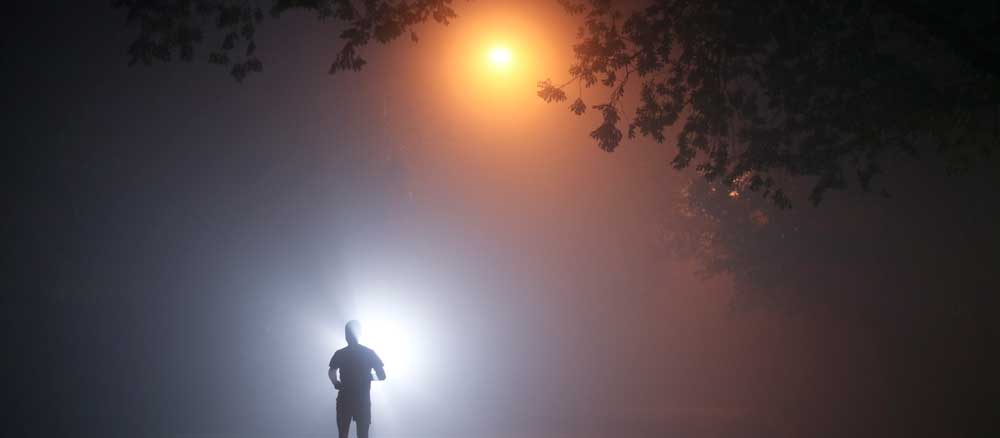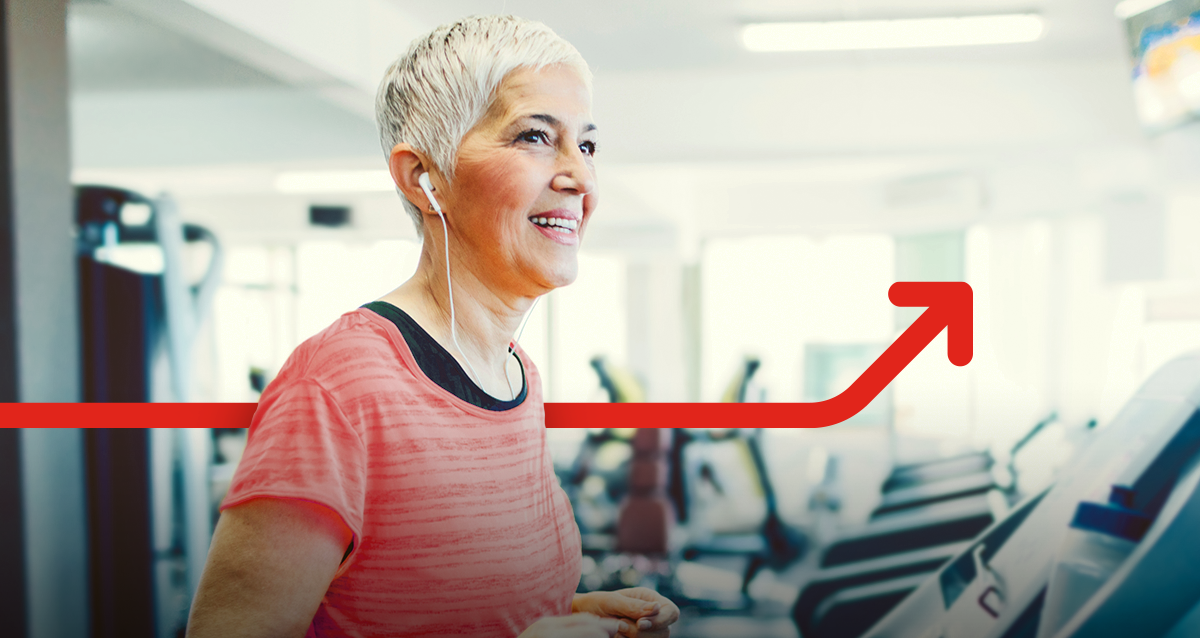Can't Sleep? Take A Hike
June 26, 2019
It's 2 am and my eyes pop open. Oh, no. My mind starts racing. All I think about is that I need to fall back asleep because I need to be up in 4 hours.
And the more I think about it, the more fearful I become and the more tense I feel. I try to calm myself down but I keep thinking about the clock. It's close to 3 am now. Time is running out. This is no way to go to sleep.
For many people, this is a nightly ritual. Insomnia is a blanket term for this issue, but there many be many underlying causes that bring us to this point. And while, we feel exhausted from this experience, the biggest mistake is to scale back on our physical activity. Sure, we're tired, but exercise may be one of things that puts us back on course.
Activity Helps Us Sleep
Exercise, like running, provides feedback to our brain that we are physically handling our problems. When we are anxious or start to experience a lot of wakefulness at night, this is often driven by increased activity in our sympathetic nervous system (called heightened sympathetic tone).
You can think of this as your fight or flight response turned on, and the best possible feedback for the fight or flight response is an actual fight or flight.
The brain will actually reduce this heightened response when we experience a big burst of cardiovascular work because that burst of cardiovascular work would be the sign in our brain and body that we were engaged in a fight or a flight. We don’t need a long burst, but rather a short burst of high intensity.
Having a treadmill, elliptical or bike nearby is a great tool for this. Since you only need to do quick sprints, it may be best to use one of these machines to accomplish that. It certainly seems safer than going outside in the dark. Although some night air may seem refreshing, it's not worth tripping over that unseen branch or even dodging the speeding car who thinks they have the road to themselves.
However, getting into a routine, particularly a morning exercise regimen, where we wake up the brain with activity and sunlight, helps our brain understand when we are supposed to be awake and when we are supposed to be sleeping, When this happens, you will most likely get better you sleep.
ReTrain Your MOOD
Physical exercise increases our levels of brain-derived neurotrophic factor (BDNF), which decreases the brain’s reactivity to cortisol (stress hormone) and increases neuroplasticity.
This is actually just the tip of the iceberg for brain benefits to exercise, but we have repeatedly seen that regular physical exercise is one of the best possible antidepressants available. We sleep better when we are less depressed, which is why mood regulation tends to be a key factor in insomnia treatment.
I'm Not An Insomniac
For many people, insomnia or problems with sleeping can start to become their identity. Friends and family constantly check on how you're sleeping.
The evening revolves around protecting sleep, while the thoughts at night focus on how much poor sleep is creating negative effects on health and well-being. No matter how fast you can run or ride, you can call yourself an athlete. Having the identity of an athlete not only boosts self-confidence, but it also can add a sense of purpose.
Social Networking
Some of our best friendships have come from exercising together, with running and walking being the methods through which emotional intimacy is established. Physical activity creates a common goal and hardship, and it helps to break barriers that might have otherwise limited emotional openness.
Looking forward to a run, ride or walk with friends can act as therapy, and give us space to process all of the ups and downs in life.
Meeting a friend for a workout also means that you have to get up in the morning, which can be really key in helping to sustain a consistent sleep routine.
Keep Moving to Keep Sleeping
Just like exercise can be a powerful antidepressant, it's also a very powerful sleep aid.
Most people are more consistent with a morning exercise routine because we tend to run out of self-discipline by the afternoon or evening. But, you should schedule it when you know it fits your day rather than not scheduling it at all.
.png?width=258&height=54&name=Landice_logo%20(1).png)





